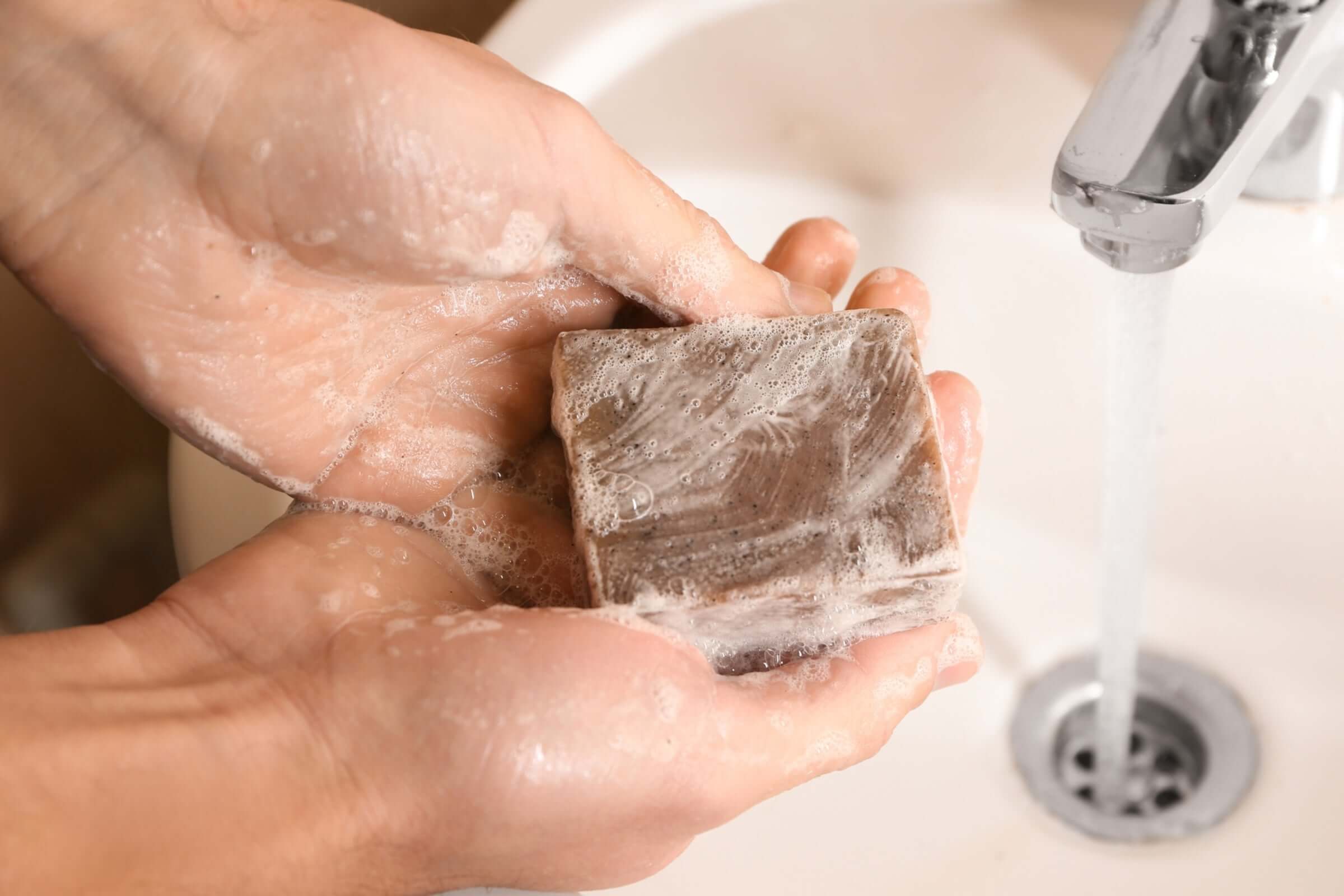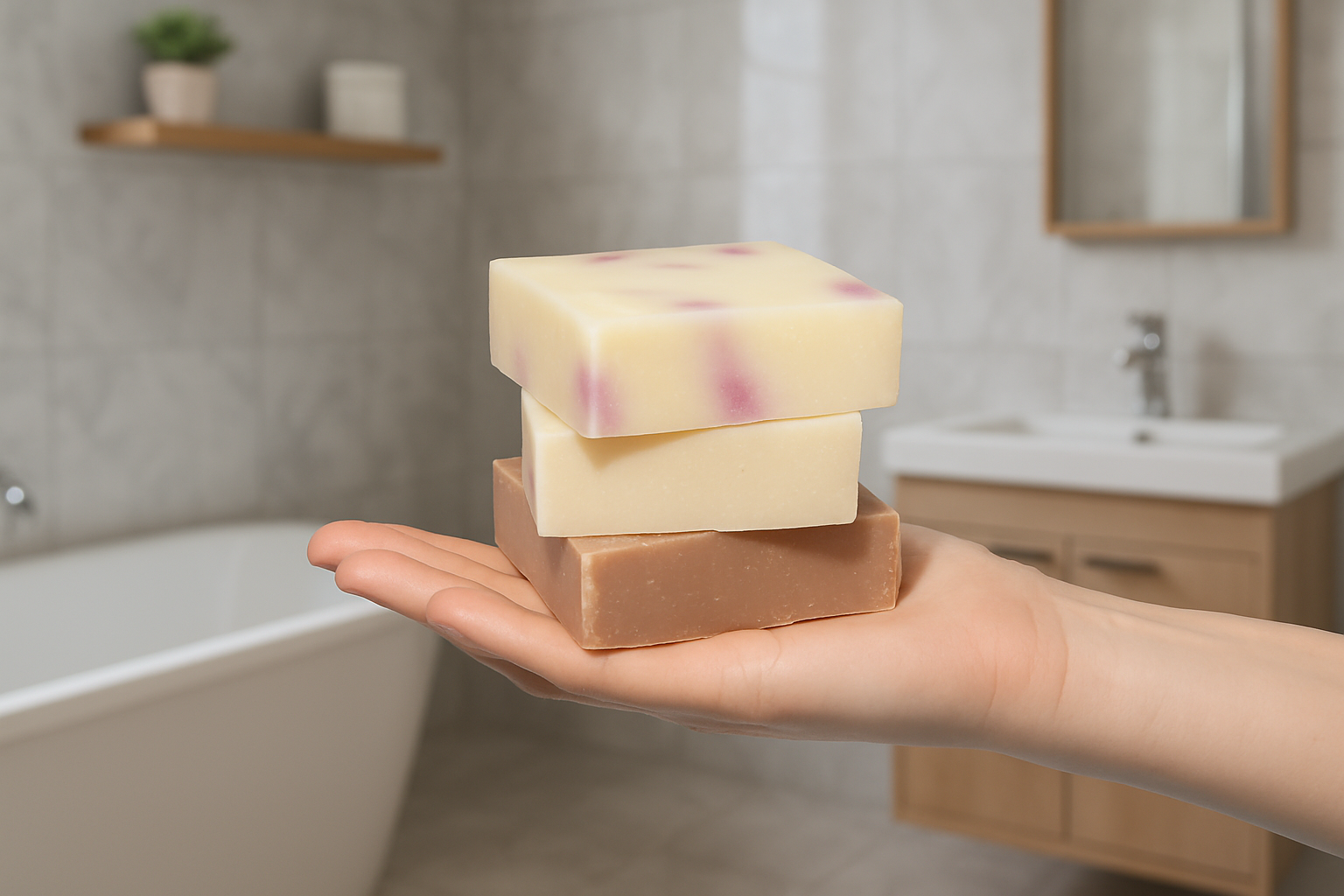Do Handmade Soaps Expire? How to Tell If They're Safe to Use

Natural soaps have gained immense popularity in recent years due to their chemical-free, skin-loving ingredients and eco-friendly production methods. But one question that often lingers in the minds of soap enthusiasts is, "Do handmade, natural soaps go bad?"
In this blog, we'll explore the shelf life of natural soaps, the factors that can cause them to expire quickly, how to identify if your handmade soap has gone bad, and steps to ensure your natural soap stays fresh for a long time. Plus, we'll touch upon the benefits of the cold process method for soapmaking.
[product=soaperstar-cbd-bath-soap-in-lavender-patchouli]
Our soap’s got staying power! Cold-processed and CBD-infused, it lasts longer than your average melt-and-pour or hot-processed bar. Stock up with confidence.
[/product]
Do handmade soaps expire?
It’s a Yes and a No. It might sound as tangled as a soap opera drama, but we're here to untangle the plot for you. Handmade natural soaps typically get better with age due to the saponification process, enhancing their quality and characteristics over time. Similar to the way fine wine or cheese matures, soap stored in a cool, dim environment can improve with a bit of aging.
However, the aging process isn't indefinite and they can indeed go rancid because the oils incorporated into the soap-making process may undergo a process of becoming rancid. Although it can go bad, they’ll most likely still be effective to use and that is why handcrafters like Nova Studio believe that handmade soaps just never expire.
As a general rule, handmade soap is best utilized within a 12-month timeframe but beyond this period, there are specific considerations to keep in mind.

Here for the long haul: Tub Therapy Soaperstar CBD Bath Soap in Tea Tree Mint, $16 each with free shipping
The Average Shelf Life of Natural Soaps
The FDA defines ‘shelf life’ as referring to the duration during which a cosmetic product is anticipated to maintain its intended appearance, functionality, and safety for use. This timeframe can vary based on the product type, its usage patterns, and the storage conditions it encounters.
The majority of commercially available soaps have a shelf life of approximately two to three years. In contrast, natural or handmade soaps may have a shorter shelf life, typically around a year, due to the presence of essential oils.
While they don't contain the synthetic preservatives found in commercial soaps, they can still have a reasonably long shelf life. However, the exact duration varies depending on several factors such as the choice of oils and storage conditions.
Factors That Can Cause Natural Soap to Expire Quickly
Ingredients: The quality and freshness of the ingredients used in soapmaking play a significant role in determining its shelf life. Rancid oils or expired additives can lead to the soap going bad faster.
Exposure to Air and Moisture: Natural soaps should be kept in a dry, cool place away from direct sunlight and excessive humidity. Exposure to air and moisture can accelerate the soap's degradation.
Storage: Inadequate storage conditions can cause the soap to lose its fragrance, color, and effectiveness more quickly.
How to Tell if Your Natural Soap Has Expired
Determining if your natural soap has gone bad is relatively simple. Look for signs of spoilage, such as:
- An unpleasant odor
- Changes in color or texture that feels slimy or gritty
- Presence of mold or bacteria
- Displaying orange spots. The presence of an orange hue in the soap results from the oils within it becoming rancid. When oils become rancid in soap, it indicates that they were not adequately saponified, meaning they were not fully transformed into soap.
- Becoming dry and cracked
If your soap exhibits any of these signs, it's time to discard it. Although it might continue to effectively cleanse, soap containing rancid oils could potentially lead to skin irritation.
How do you know if your old soap is still good to use?
Beyond the recommended 12-month window, natural soaps won't necessarily be "spoiled," but you may notice some changes that should not cause alarm:
Scent Variations: The soap's scent may mellow or evolve, leading to a different olfactory experience.
Color Shifts: Some natural ingredients may cause the soap's color to shift slightly over time.
Texture Transformation: The soap's texture can become firmer and more durable as it loses moisture.
Slight Hardening: You may observe a minor hardening of the soap, which can affect how it lathers.
Fading Fragrance: Fragrance components may gradually dissipate, resulting in a milder scent profile. Essential oils are considered "volatile," which means they have a tendency to evaporate upon exposure to air. As a result, the fragrance in soaps can dissipate when the essential oils responsible for those delightful scents evaporate, though technically still safe to use.
Steps to Ensure Longevity of Your Natural Soap
To ensure the longevity of your natural soap, there are several steps you can take:
First, store it in a cool, dry place away from direct sunlight and moisture. Allowing the soap to dry between uses by using a well-drained soap dish or rack can also extend its lifespan. When not in use, keep it wrapped or sealed to minimize exposure to air.
Additionally, using soap savers made of cotton can be a good way to extend your soap's shelf life. These savers help keep your soap dry between uses, preventing it from sitting in excess moisture.
How to shop for quality handmade soaps
Look for a light fragrance: Be cautious when selecting a handmade soap with an overpowering fragrance as it often indicates an abundance of fragrance oils or essential oils, which can expedite soap spoilage. Instead, opt for a delicately scented soap with a creamy texture.
Light lather: It's essential to strike a balance between lathering and soothing properties. Excessive lather can lead to skin dryness. Aim for a soap that achieves a harmonious blend of a moderate lather and effective cleansing, leaving your skin with a healthy radiance. Ultimately, balance is the key to a quality handmade soap bar that not only cleanses but also moisturizes your skin.
Look for cold processed soap: The cold process method is a traditional soap making technique where the saponification (the chemical reaction that turns oils and lye into soap) occurs at lower temperatures. This method preserves the natural properties of the ingredients and produces a harder and longer-lasting soap compared to hot-processed or melt-and-pour soaps.

What we recommend: Tub Therapy Soaperstar CBD Bath Soap in Oatmeal Milk & Honey, $16 each with free shipping
Our verdict?
Keep in mind, the longer your soap's shelf life, the more extended your self-care journey can be. While handmade, natural soaps can have a longer shelf life compared to their commercial counterparts, they are not immune to expiration. Proper storage and choosing cold process soap can significantly extend their lifespan. So, go ahead and indulge in the world of natural soaps, knowing that with the right care, they'll stay fresh and effective.



